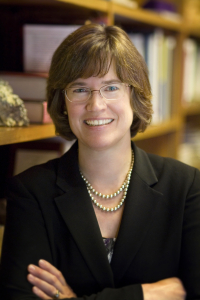 The entire nation is reeling with the devastating events in Tucson and the attempted assassination of Gabrielle Giffords. While we do not yet know the full details of this tragedy, nor do we understand the true motivation that led to the killings, authorities indicate she was the clear target. We all struggle to understand how anyone could do something so heinous.
The entire nation is reeling with the devastating events in Tucson and the attempted assassination of Gabrielle Giffords. While we do not yet know the full details of this tragedy, nor do we understand the true motivation that led to the killings, authorities indicate she was the clear target. We all struggle to understand how anyone could do something so heinous.
Scripps College, a small, women’s liberal arts college is Gabrielle Giffords’ alma mater. So we are particularly heartbroken by the tragic events and are rallying around Gabrielle and her family. As we hold her in our hearts, we are unified in our voice that Gabrielle embodies the values of Scripps College and a liberal arts education, and thus represents the best the nation has to offer.
Gabrielle is a role model, not just for our students, but for all women and for all Americans. She did not shy away from her calling to be a leader. With grace and determination, she has become an outstanding and courageous public servant. Gabrielle Giffords’s career shows that she is fiercely independent — framing her positions on issues thoughtfully and humanely, and, in the words of our founder, Ellen Browning Scripps, “with confidence, courage and hope.”
Listen to her own words. In her 2009 commencement address at Scripps, Congresswoman Giffords told our students: “The safety of the world depends on your saying ‘no’ to inhumane ideas. Standing up for one’s own integrity makes you no friends. It is costly. Yet defiance of the mob, in the service of that which is right, is one of the highest expressions of courage I know.” Prescient words.
Public service, in all forms, is courageous. Respectful disagreement — the ability to hear another’s viewpoint despite your own, without hate and distortion — has been lost in the current political climate. Gabrielle Giffords believes in her calling to enact change through the political process in an open, honest, and authentic manner, without harsh criticism or inflammatory rhetoric.
Gabrielle deeply appreciated her liberal arts education: the exposure to different ideas, different ways of thinking. In her words: “What Scripps forced you to grapple with was a peeling back of the human onion in order to discover the supreme value of the soul and how crucial it is to maintain personal integrity and honesty.” She believes in free exchange of ideas, understanding difference, and taking a stand based on rational and critical reasoning. As Martha Kantor said to the Annapolis Group in 2010, “A liberal arts education teaches us [that] empathy is hard-learned, but demagoguery is easy.”
What can we take away from this tragedy? We have a responsibility to the victims and their families to learn from this event. A senseless act must be turned into an opportunity for this country to unify, to learn from Gabrielle Giffords about the power of constructive and collaborative dialogue. To embrace human dignity, to resist the temptation to point fingers and blame, but to change the discourse for the betterment of our future. We are, after all, a democracy — a democracy that requires an empathetic and knowledgeable citizenship and respects the right to disagree.
This editorial originally appeared in Inside Higher Education on January 11, 2011. Click here to view the original article.
Watch

